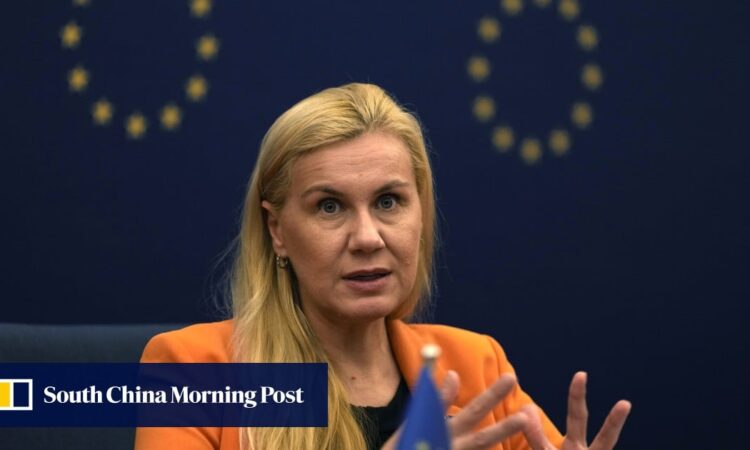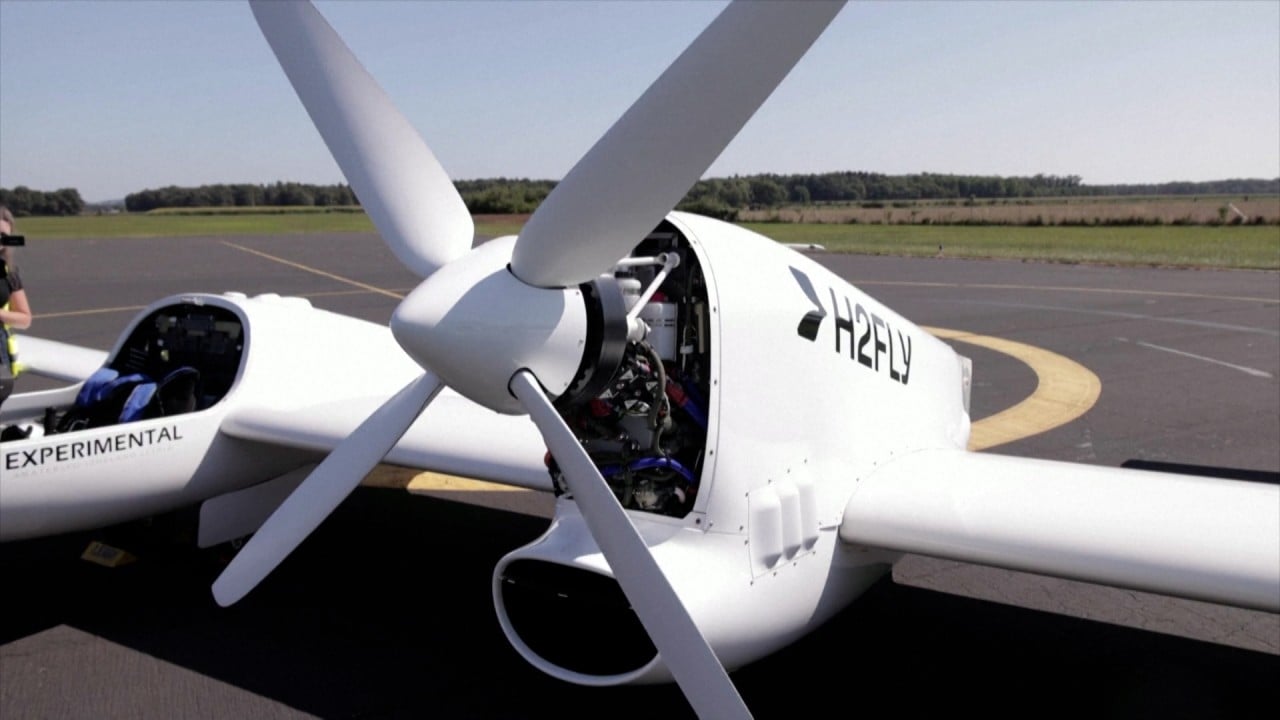China, EU ‘can play great part’ in climate battle, bloc energy chief Kadri Simson says in call to join methane pledge

It was in China and the EU’s mutual interest to stabilise the international energy markets, European energy commissioner Kadri Simson told a press conference in Beijing on Thursday.
“We discussed the situation in the energy markets and how we can cooperate to [ensure] that the global gas and oil markets will be more stable and less volatile,” she said after co-hosting a high-level annual bilateral energy dialogue, the first in-person edition of the event since 2019.
“Both of us can play a great part by reducing global warming in the short or medium perspective,” she said, urging China to commit to global pledges to reduce methane emissions and triple renewable energy capacity by 2030.
“China so far has not committed despite the fact that they are global leaders in deploying renewables,” she added.
G20 must lead way on energy transition plans at COP28, new leader urges
G20 must lead way on energy transition plans at COP28, new leader urges
Simson’s visit to Beijing comes at a time of increasing tensions over trade ties, as Brussels steps up what it calls “de-risking” moves to cut dependence on China.
The EU also blames China’s tech self-reliance drive and prioritising of national security for having unfairly squeezed foreign business.
Earlier this month, the bloc formally launched an anti-subsidy probe into Chinese electric vehicle exports over allegations of unfair state support. It is also considering trade investigations into other imports from the world’s No 2 economy.
The conflict revolves around the EU’s effort to strike a balance between cheaper Chinese imports and the need to speed up the adoption of green energy sources – to realise the bloc’s ambitious goal of generating 45 per cent of its electricity from renewables by 2030.
China has pledged to achieve peak carbon emission by 2030 and become carbon neutral by 2060.
“Europe has some technologies at our disposal where we can assist China so that Chinese electricity, for example, could accommodate more rain waters,” Simson said, referring to the bloc’s electricity market design to incorporate more renewables, as well as safer ways to accommodate such energy sources to avoid any blackout risks.
“But, so far, the share of renewables in the European energy mix is higher than in China.”
The severe energy crisis sparked in Europe by Russia cutting off natural gas access has proven the dangers of being too reliant on a single supplier, Simson said in emphasising the need to diversify.
“De-risking doesn’t mean that we will build an energy island,” she said. “On the contrary, we do believe that open markets are crucial for global decarbonisation and we plan to keep our markets open.”
Speaking at the North China Electric Power University’s Beijing campus on Wednesday, Simson said Europe struggled “to understand China’s position and its close collaboration with Russia”. This was because, beyond the human tragedy, Russia’s military aggression in Ukraine was having deeper damaging effects on the energy system.
On the EU investigation into China-made electric vehicles, Simson said it was “based on facts and numbers”.
The EU believes that just and fair competition benefits all consumers, she said. “But if there are cases of unfair competition or providing subsidies or dumping, then we have to launch investigations.”







